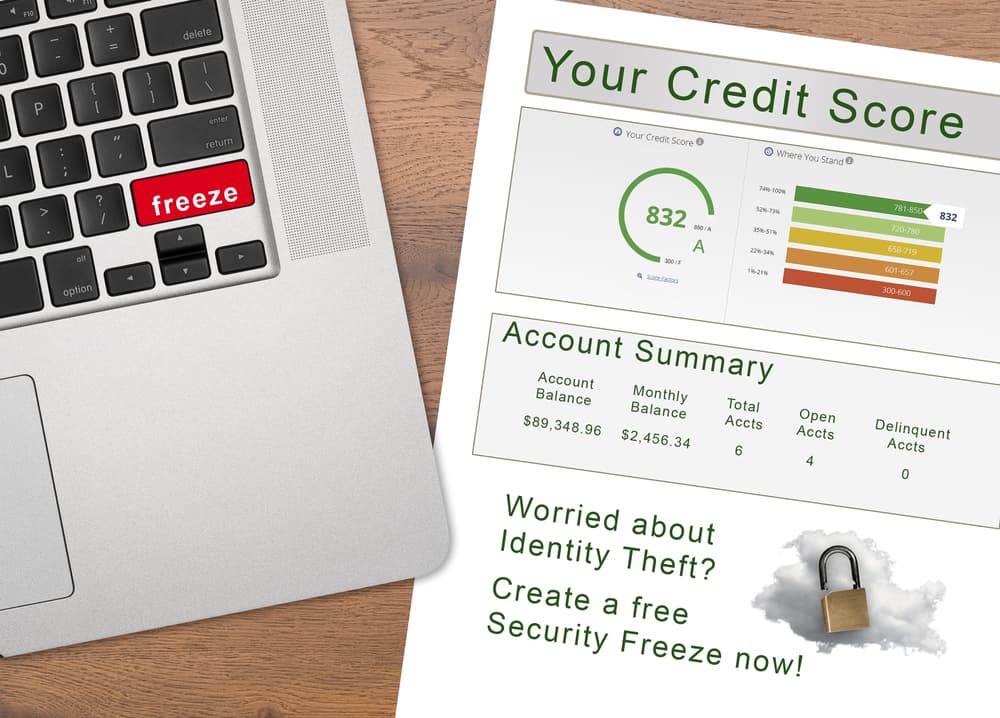Identity theft is a serious crime that can have devastating consequences for victims. If you suspect that you have been a victim of identity theft, it’s important to act quickly to minimize the damage and protect your credit and financial well-being.
In this blog post, we’ll provide a step-by-step guide on what to do if you’re a victim of identity theft, including how to report the crime, protect your accounts, and recover from the damage.
If you’re a victim of identity theft, consider seeking the assistance of an identity theft victim lawyer to help navigate the legal complexities and protect your rights.
Step 1: Identify the Signs of Identity Theft
The first step in dealing with identity theft is to identify its signs.
Common signs of identity theft include:
Unauthorized Transactions or Charges
One of the most common signs of identity theft is unauthorized transactions or charges on your credit card or bank statements.
Identity thieves may use your stolen credit card information to make online purchases, withdraw cash from ATMs, or create counterfeit credit cards in your name. They may also use your stolen bank account information to make fraudulent purchases or transfers.
If you notice any unauthorized transactions or charges on your statements, contact your credit card company or bank immediately to report the fraud and request that it reverse the charges. You may also need to close your existing accounts and open new ones to prevent further fraudulent activity.
Regularly review your credit card and bank statements for any suspicious activity, even if you haven’t noticed any other signs of identity theft. Catching unauthorized transactions early can minimize the damage and make it easier to recover from the theft.
Bills or Collection Notices for Unknown Accounts

Another sign of identity theft is receiving bills or collection notices for accounts you didn’t open. Identity thieves may use your stolen personal information, such as your name, address, and Social Security number, to open new credit card accounts, utility accounts, or even mortgages or car loans in your name.
You may not discover these fraudulent accounts until you receive a bill or collection notice in the mail. These notices may come from companies you don’t recognize or for products or services you never purchased.
If you receive a bill or collection notice for an account you didn’t open, contact the creditor immediately to report the fraud and request that the account be closed. You may also need to file a police report and provide a copy of the report to the creditor to prove that you are a victim of identity theft.
Take action quickly if you receive a bill or collection notice for an unknown account, as the longer the account remains open, the more damage it can do to your credit and financial well-being.
Unfamiliar Accounts or Inquiries on Your Credit Report
Another way to detect identity theft is to regularly review your credit report for any unfamiliar accounts or inquiries. Your credit report is a detailed record of your credit history, including all of your credit accounts, payment history, and any inquiries from creditors.
Identity thieves may use your stolen personal information to open new credit accounts in your name, such as credit cards, personal loans, or even mortgages. These fraudulent accounts will appear on your credit report as if you had opened them yourself.
You may also notice inquiries on your credit report from creditors you don’t recognize. These inquiries may show that someone attempted to open a new account in your name, even if the attempt failed.
If you notice any unfamiliar accounts or inquiries on your credit report, contact the creditor immediately to report the fraud and close the account. You may also need to file a dispute with the credit bureau to have the fraudulent information removed from your credit report.
Review your credit report regularly, even if you haven’t noticed any other signs of identity theft. You are entitled to one free credit report from each of the three major credit bureaus every 12 months, which you can request at www.annualcreditreport.com.
Notices from the IRS or State Tax Agency
Identity thieves may also use your stolen personal information to file fraudulent tax returns in your name, claiming refunds that they then steal. You may not discover this type of identity theft until you receive a notice from the IRS or your state tax agency.
These notices may indicate that a tax return has already been filed in your name or that there is a discrepancy between the information on your tax return and the information the agency has on file. You may also receive a notice indicating that you owe additional taxes or that your refund has been withheld.
If you receive a notice from the IRS or your state tax agency that you believe is related to identity theft, contact the agency immediately to report the fraud and request an investigation. You may also need to file a police report and provide a copy of the report to the agency to prove that you are a victim of identity theft.
Take action quickly if you suspect tax-related identity theft, as the longer you let the fraudulent return remain on file, the harder you make it to resolve the issue and obtain your rightful refund.
Denial of Credit or Employment
Identity theft can also lead to the denial of credit or employment due to fraudulent activity on your credit report. If an identity thief opened accounts or made purchases in your name, it can negatively impact your credit score and make it difficult to obtain credit or secure employment.
You may not discover this type of identity theft until you apply for credit or a job and are denied due to negative information on your credit report. The creditor or employer may provide you with a copy of your credit report, which you can then review for any fraudulent activity.
If you are denied credit or employment due to fraudulent activity on your credit report, contact the creditor or employer immediately to report the fraud and request a reevaluation of your application. You may also need to file a dispute with the credit bureau to have the fraudulent information removed from your credit report.
Suspicious Emails, Texts, or Social Media Messages
Finally, identity thieves may use phishing scams or social engineering tactics to trick you into revealing your personal information, such as your login credentials, Social Security number, or credit card information. These scams may come in the form of suspicious emails, texts, or social media messages.
The messages may appear to be from a legitimate company or government agency and may use urgent or threatening language to pressure you into providing your information. They may also contain links or attachments that, when clicked, install malware on your device or direct you to a fake website designed to steal your information.
If you receive a suspicious email, text, or social media message related to your personal information, do not respond or click on any links or attachments. Instead, contact the company or agency directly using a phone number or email address you trust to verify the legitimacy of the message.
Be cautious when sharing personal information online or over the phone, even if the request appears to be from a legitimate source. Identity thieves are constantly developing new and sophisticated scams to trick people into revealing their information, so stay vigilant and protect your personal information at all times.
Step 2: Contact Your Financial Institutions
If you suspect that your credit card or bank accounts were compromised, contact your financial institutions immediately. Inform them that someone stole your identity and request that they close any fraudulent accounts and issue you new cards and account numbers.
Be sure to follow up in writing and keep detailed records of all contacts with your financial institutions, including the names of representatives you spoke with and any correspondence you sent or received.
Step 3: Place a Fraud Alert on Your Credit Report
The next step is to place a fraud alert on your credit report with one of the three major credit bureaus: Equifax, Experian, or TransUnion. A fraud alert notifies creditors that they should take extra steps to verify your identity before granting credit in your name.
To place a fraud alert, contact one of the credit bureaus and request that an alert be placed on your credit report. The bureau you contact will notify the other two bureaus on your behalf. You will need to provide proof of your identity, such as a copy of your driver’s license or Social Security card.
There are three types of fraud alerts you can place on your credit report:
- Initial fraud alert: This alert lasts for 90 days and is appropriate if you suspect you may be a victim of identity theft but have not yet confirmed it.
- Extended fraud alert: This alert lasts for seven years and is appropriate if you have confirmed that you are a victim of identity theft and have filed a police report.
- Active duty military alert: This alert lasts for one year and is appropriate if you are a military member and are deployed overseas.
Step 4: Order Your Credit Reports
After placing a fraud alert on your credit report, order copies of your credit report from each of the three credit bureaus. You are entitled to one free credit report from each bureau every 12 months, and you can request them online at www.annualcreditreport.com.
Review your credit reports carefully for any suspicious activity or accounts you don’t recognize. If you find errors or fraudulent accounts, dispute them with the credit bureaus and the creditors involved.
Step 5: File a Police Report
If you have confirmed that you are a victim of identity theft, file a police report with your local law enforcement agency. This creates an official record of the crime. You may need this to dispute fraudulent accounts or seek legal remedies.
When filing a police report, provide as much information as possible about the theft, including any evidence you have gathered and any contacts you have had with creditors or government agencies. Ask for a copy of the police report, as you may need it for future reference.
Step 6: Report the Theft to the Federal Trade Commission
In addition to filing a police report, report the identity theft to the Federal Trade Commission (FTC). The FTC maintains a database of identity theft complaints and provides resources for victims, including an Identity Theft Report that can be used to help prove your case to creditors and government agencies.
Step 7: Dispute Fraudulent Accounts and Transactions
If you have discovered fraudulent accounts or transactions on your credit report or financial statements, dispute them with the credit bureaus and creditors involved. You may need to provide a copy of your police report or Identity Theft Report to prove your case.
When disputing fraudulent accounts or transactions, be sure to do so in writing and keep detailed records of all contacts with the credit bureaus and creditors. Follow up regularly to ensure they investigate your dispute and remove any fraudulent information from your credit report.
Step 8: Consider a Credit Freeze

In addition to placing a fraud alert on your credit report, you may want to consider placing a credit freeze. A credit freeze prevents anyone from accessing your credit report without your permission, making it much harder for identity thieves to open new accounts in your name.
To place a credit freeze, contact each of the three credit bureaus separately and request that a freeze be placed on your credit report. You may need to provide proof of your identity and pay a small fee, but the fee is waived if you are a victim of identity theft and have filed a police report.
Keep in mind that a credit freeze can make it more difficult for you to apply for credit or open new accounts, as you will need to temporarily lift the freeze each time you want to allow a creditor to access your credit report. However, a credit freeze can provide an extra layer of protection against identity theft and is worth considering if you have been a victim of this crime.
Step 9: Monitor Your Credit and Financial Accounts
After reporting identity theft and taking steps to protect your accounts, it’s important to continue monitoring your credit report and financial accounts for any signs of ongoing fraudulent activity.
This may include:
- Reviewing your credit report regularly for any new accounts or inquiries you don’t recognize
- Checking your bank and credit card statements for any unauthorized transactions
- Setting up alerts with your bank or credit card company to notify you of any suspicious activity
- Considering a credit monitoring service that can alert you to changes in your credit report
If you discover any new fraudulent activity, report it immediately to the appropriate agencies and dispute it with the creditors involved.
Step 10: Seek Professional Help
Dealing with identity theft can be a stressful and overwhelming experience, especially if you are facing legal troubles or difficulties resolving disputes with creditors. If you need additional support or guidance, consider seeking the help of a professional who specializes in identity theft cases.
Some options for professional help include:
- A qualified attorney who can provide legal advice and representation
- A credit counselor who can help you develop a plan for rebuilding your credit
- A victim advocate who can provide emotional support and connect you with resources
- An identity theft protection service that can monitor your credit and provide assistance with recovery
Look for professionals who have experience dealing with identity theft cases and are familiar with the laws and regulations in your state. Many offer free consultations or low-cost services for victims of identity theft.
Contact an Attorney for Guidance

Identity theft is a serious crime with long-lasting consequences for victims. If you suspect that someone stole your identity, act quickly to minimize the damage and protect your credit and financial well-being.
Seek the help and support of professionals, such as consumer protection attorneys, credit counselors, and victim advocates, who can provide guidance and assistance throughout the process.
If someone stole your identity, don’t hesitate to take action and report the crime. By doing so, you can protect yourself and prevent future crimes.
